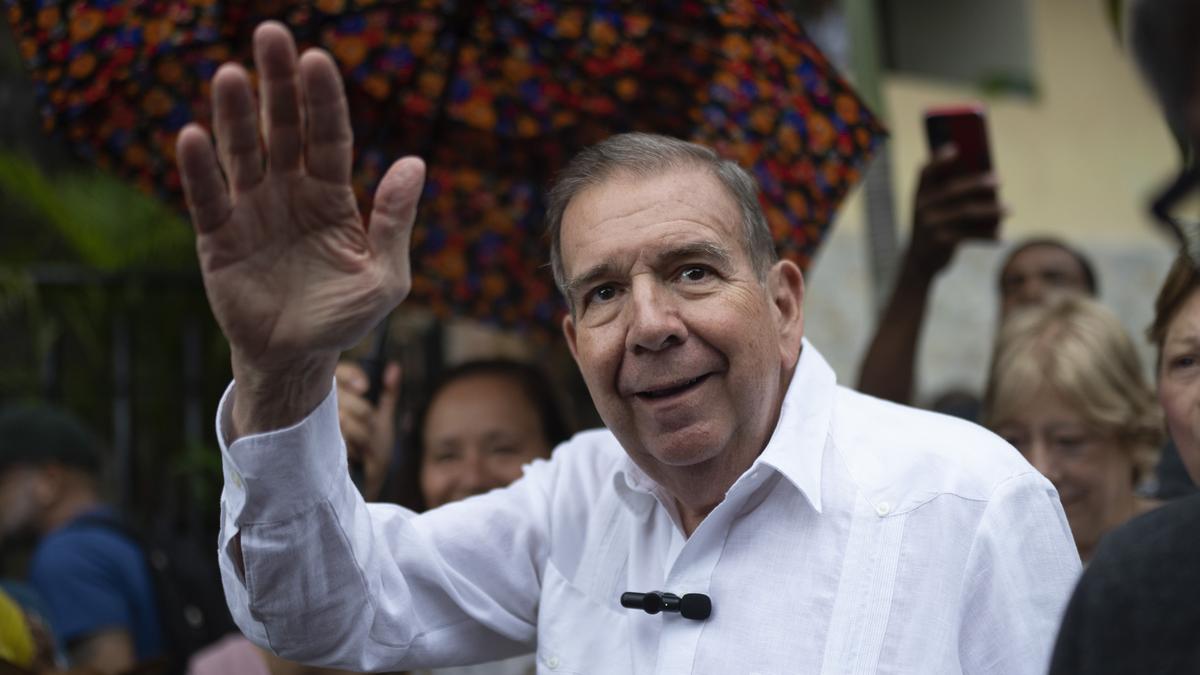The recent departure of Edmundo González, a Venezuelan opposition presidential candidate, from Venezuela after seeking asylum in Spain marks a significant setback for the opposition’s efforts to challenge President Nicolás Maduro’s grip on power. While the Venezuelan government claims González’s departure was granted to restore “political peace and tranquility,” the move is widely seen as a blow to the opposition, leaving them without a clear leader and raising questions about the future of their campaign.
The Controversial Election and González’s Ascent
The July presidential election in Venezuela was marred by widespread allegations of irregularities and fraud, with most Western governments refusing to recognize the results. The opposition, led by Maria Corina Machado, initially denounced the election as a sham. However, when Machado was barred from running, González, a little-known former diplomat, stepped in as a last-minute replacement. González’s campaign, fuelled by the public’s desperate desire for change after a decade of economic crisis, quickly gained momentum and generated immense hope among Venezuelans.
Tally Sheets and a Disputed Outcome
The opposition, based on tally sheets collected from over two-thirds of the electronic voting machines, claimed that González won the election by a landslide. While the National Electoral Council (CNE) failed to release any data, citing a cyberattack, the opposition’s claims gained traction internationally, with experts from the United Nations and the Carter Center acknowledging the authenticity of the tally sheets and questioning the CNE’s credibility. The lack of transparency and the opposition’s unwavering claims regarding the election’s outcome heightened the political tension within the country.
González’s Departure and its Implications
González’s unexpected departure after seeking asylum in Spain raises critical questions about the opposition’s ability to sustain their movement. While the Venezuelan government frames González’s departure as a positive step towards stability, the opposition views it as a significant blow, leaving them without a recognized leader and casting a shadow over their campaign for change.
Loss of Leadership and Political Uncertainty
The absence of a unified front and a recognizable figurehead could significantly impact the opposition’s ability to coordinate and mobilize their supporters effectively. González’s exit weakens the opposition’s legitimacy in the eyes of the international community, diminishing their ability to garner support and pressure the Maduro regime. This lack of a prominent leader further underscores the challenges faced by the opposition in their fight against Maduro.
Impact on the Opposition’s Strategy
González’s departure forces the opposition to rethink their strategy. They face the difficult task of re-energizing their supporters, finding a new leader who can effectively unite the fractured movement, and re-evaluating their options for challenging Maduro’s regime. The future of the Venezuelan opposition remains uncertain, with the departure of González creating a void that needs to be filled with strategic vision and determined leadership.
The Implications for Venezuela’s Future
The Venezuelan political landscape is increasingly complex and unpredictable. While the Maduro government may be tempted to portray González’s departure as a sign of strength, the opposition’s resilience and continued fight for democratic change cannot be disregarded. The country’s future hangs in the balance, with the potential for continued instability and escalating tensions.
The Need for International Engagement
The international community must remain engaged in Venezuela, applying diplomatic pressure on the Maduro regime to respect human rights, facilitate free and fair elections, and implement reforms. Sustained international support and a unified stance on condemning electoral irregularities and human rights violations are critical in supporting democratic forces in Venezuela and promoting a peaceful transition towards a more just and prosperous future.
A Focus on Human Rights and Democracy
Ultimately, the path towards a sustainable solution for Venezuela lies in a commitment to human rights, respect for the rule of law, and democratic principles. A peaceful and inclusive dialogue between the government and the opposition, mediated by reputable international actors, is crucial to pave the way for credible elections, transparency, and a lasting political solution.
Takeaway Points
- The departure of Edmundo González, the Venezuelan opposition presidential candidate, after seeking asylum in Spain represents a significant blow to the opposition’s efforts to challenge President Nicolás Maduro.
- González’s absence creates a leadership void and potentially weakens the opposition’s ability to mobilize and maintain momentum.
- The international community’s sustained support for democratic forces in Venezuela, coupled with focused diplomatic pressure on the Maduro regime, remains vital for achieving a peaceful and lasting solution.
- The future of Venezuela remains uncertain, with the country’s stability and well-being hanging in the balance.
- Continued engagement and support from international actors are essential for promoting a democratic transition, respecting human rights, and fostering a more stable and prosperous future for the people of Venezuela.




